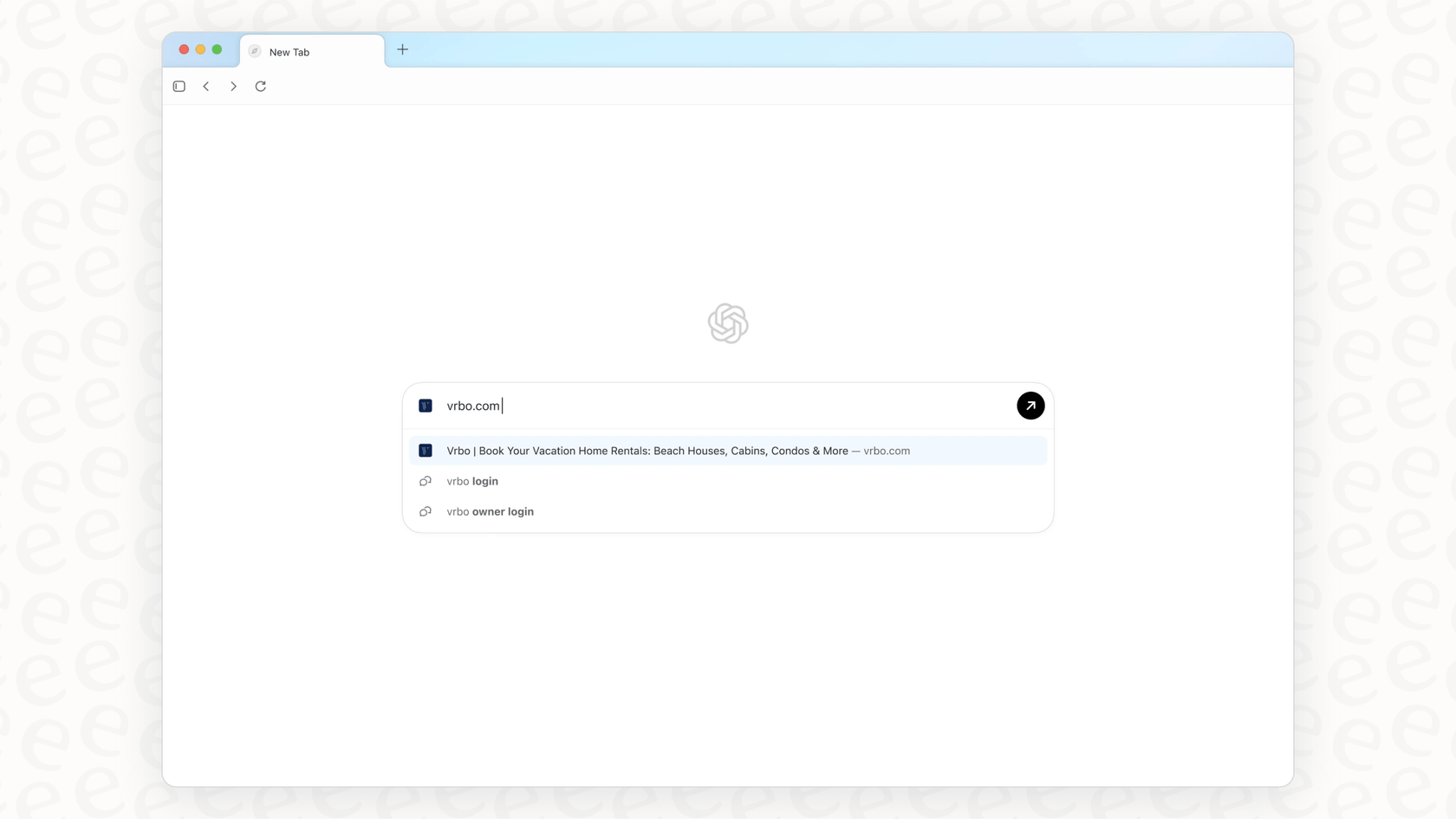
Let's be honest, how we find information has completely changed. We're talking less to search bars and more to AI chatbots. Two of the heaviest hitters in this new ring are OpenAI’s ChatGPT Atlas and Google’s Gemini Advanced. They both pack a serious AI punch, but they're built for totally different fights.
This guide will break down the real differences between ChatGPT Atlas vs Gemini Advanced, looking at their features, performance, price, and who they’re actually for. We’ll also get into why even the smartest general-purpose AIs aren't the answer for specific business tasks like customer support, and what you should be using instead.
What is ChatGPT Atlas?
Think of ChatGPT Atlas as a web browser with a brain. Instead of being a chatbot you open in a separate tab, Atlas builds ChatGPT's smarts directly into your browsing. The whole idea is for it to act as your "cognitive partner," figuring out what you actually need, pulling information from multiple websites, and giving you a neat summary so you don't have to juggle a dozen tabs.

It's based on a concept called agentic AI. In simple terms, this means the tool doesn't just wait for your command; it actively goes to work for you. It can research topics, compare products, and pull everything together in a conversational way. It turns browsing from a scavenger hunt into a focused dialogue.
What is Gemini Advanced?
Gemini Advanced is Google's premium, souped-up version of its AI chatbot, Gemini. For a monthly fee, you get front-of-the-line access to their most powerful models, like Gemini 2.5 Pro. Unlike Atlas, which is a browser, Gemini Advanced is a standalone chatbot that’s plugged into pretty much everything Google.
Its biggest selling point is how deeply it connects with products you already use, like Docs, Sheets, Gmail, and Maps. It's meant to be your do-it-all assistant, whether you're brainstorming ideas, writing an article, or trying to make sense of a spreadsheet inside your Google Workspace. It uses Google Search to stay up-to-date, but its main job is to be a versatile chatbot, not a new way to browse.
ChatGPT Atlas vs Gemini Advanced: Core capabilities and user experience
While both tools are built on some seriously advanced AI, using them day-to-day feels completely different. It really boils down to one thing: browser vs. chatbot.
ChatGPT Atlas completely shakes up how you browse the web. You can ask it to give you the gist of a long article, compare specs on two products from different sites, or pull together research without ever leaving the page you're on. For anyone whose job involves heavy web research, it's a huge time-saver. That said, it's still new. Some early users have pointed out that it can be a bit of a battery hog and is
It’s a cool new way to work, but it's still ironing out the wrinkles.Gemini Advanced gives you a more familiar chatbot experience, but with a secret weapon: its integration with the entire Google ecosystem. You can ask it to summarize a painfully long email chain in Gmail or whip up a presentation in Slides from a Google Doc. This makes it an absolute beast for anyone who spends their day in Google's world. On the flip side, it can sometimes be a bit too careful. As reviewers at CNET have noted, it sometimes dodges questions about current events or public figures. This safety-first approach is understandable, but it can occasionally stop you from getting a simple, direct answer.
ChatGPT Atlas vs Gemini Advanced: Performance, reasoning, and accuracy
Okay, so how good are their answers? Both are scarily impressive, but they have their own personalities.
ChatGPT, running on OpenAI's latest models, is often praised for its creative flair and logical reasoning. It's great at creating structured text, writing decent code, and sticking to a specific tone of voice. It has a knack for sounding confident, which is fantastic when it's right, but a little tricky when it's wrong. Like any AI, it can "hallucinate" (a polite way of saying it makes things up), but its ability to follow complex instructions gives it an edge for creative and technical work.
Gemini has been catching up fast, with models like Gemini 2.5 Pro topping the charts on some performance tests. Because it taps directly into Google Search, it can be more on-the-ball with questions about recent events. Still, it can be a bit of a mixed bag. Some tests show it giving better product recommendations than ChatGPT, while others find it oversimplifying tricky subjects or fumbling with nuanced questions. It's incredibly powerful, just not always consistent.
But here's the catch for both: they don't know your business. They've been trained on the wide-open internet, which means they can't give you answers based on your company's private, internal documents. For any business, that's a dealbreaker. You can't ask either of them to answer a customer's question using your internal help center articles or past support tickets.
ChatGPT Atlas vs Gemini Advanced: Integrations, customization, and business use
How well a tool fits into your daily routine often depends on how it connects with the other software you use.
Gemini Advanced is the obvious choice for anyone all-in on the Google ecosystem. The way it works with Workspace apps is smooth and genuinely useful. For the more technically inclined, Gemini is also part of the Vertex AI platform, which gives businesses more control over security and data.
ChatGPT Atlas and the wider OpenAI platform have a powerful API and a ton of plugins and custom GPTs. This gives you a lot of flexibility to build your own solutions, but it usually requires some coding skills. While you can connect ChatGPT to other apps, it's not something a non-technical team member can just set up in an afternoon.
Neither platform offers the kind of plug-and-play integrations you need for business-critical work like customer support. They can't just connect to your helpdesk, like Zendesk or Freshdesk, to start sorting tickets or drafting replies based on your company's knowledge. This is where general-purpose AI tools hit a wall.
ChatGPT Plus vs Gemini Advanced pricing
When you look at the price tags, there’s not much to separate them. Both are hovering around the same monthly cost, so your decision will likely come down to features, not your wallet.
Gemini Advanced is part of the Google One AI Premium plan.
-
Price: $19.99/month per user.
-
What you get: Access to Gemini 2.5 Pro, integration into Gmail, Docs, Slides, etc., 2 TB of Google One storage, and other premium perks.
ChatGPT has a few paid options. The one that lines up best for individual users is ChatGPT Plus.
-
Price: $20/month per user.
-
What you get: Access to the latest models (like those from the GPT-5 family), quicker responses, priority access to new features, and creative tools like DALL-E 3 for making images.
For companies, OpenAI offers ChatGPT Team ($25/user/month, billed annually) and ChatGPT Enterprise (you'll have to call them for pricing), which add team features, admin dashboards, and better security.
| Feature | Gemini Advanced (via Google One AI Premium) | ChatGPT Plus |
|---|---|---|
| Monthly Price | $19.99 | $20 |
| Core Model | Gemini 2.5 Pro | GPT-5 family |
| Key Feature | Deep integration with Google Workspace | Advanced reasoning, image generation, custom GPTs |
| Ecosystem | Google (Docs, Gmail, Sheets) | OpenAI API, Plugins |
| Ideal User | Heavy Google Workspace users | Individuals needing versatile creative and analytical tools |
The business bottleneck: Why general AI falls short for support teams
ChatGPT Atlas and Gemini Advanced are amazing tools for personal productivity. But the moment you try to use them for something specific, like customer service or internal IT help, you start to see the cracks.
-
They can't connect to your tools: They can't just plug into your helpdesk (like Zendesk or Intercom) to see past conversations, understand your canned responses, or do things like tag and close tickets.
-
They don't know what you know: You can't train them only on your company's private knowledge, like your Confluence pages or internal Google Docs. Their answers will always be mixed with general web info, which can lead to responses that are off-brand or just plain wrong.
-
You have no control: You can't set rules for when the AI should step in and when it should pass a conversation to a human. It's an all-or-nothing approach that’s just too risky when you're talking to customers.
-
Setup is a headache: Getting them to work with your business systems requires developers, custom code, and a lot of time. There’s no easy "on" switch for your business teams.
These issues mean that while they're great for writing an email or summarizing a report, they just aren't built to handle the demands of a modern support team.
Beyond ChatGPT Atlas vs Gemini Advanced: A better way with eesel AI
Instead of trying to jam a square peg into a round hole, a purpose-built platform like eesel AI is designed specifically to handle these exact problems.
eesel AI is an AI platform that connects directly to the tools you already use. It pulls together all your company knowledge, from your helpdesk, past tickets, Confluence, Google Docs, and more, to provide accurate answers that are actually relevant to your business.

Here’s how it gets around the limitations of general AI:
-
Go live in minutes, not months: With one-click integrations for tools like Zendesk, Slack, and Confluence, you can get an AI agent up and running yourself, no developers required.
-
You're in complete control: A simple workflow builder lets you decide precisely which tickets the AI should handle. You can even run a simulation on your past tickets to see how it will perform before it ever speaks to a real customer.
-
It learns from your knowledge: eesel AI bases its answers on your past support conversations and internal docs. This ensures its responses are always on-brand and based on your company's truth, not the entire internet.
Choose the right tool for the right job
The whole ChatGPT Atlas vs Gemini Advanced debate isn't about finding the one "best" AI. It's about finding the best one for what you need to do right now. ChatGPT Atlas is changing the game for web research, while Gemini Advanced is a productivity machine for anyone in the Google ecosystem.
Both are fantastic for individual use. But for critical business functions like customer support, they're missing the necessary integrations, control, and specialized knowledge. When your goal is to automate tasks, make your team more efficient, and give customers accurate answers based on your unique business, you need a tool that was built for that job.
Ready to see what a specialized AI can do for your support team? Get started with eesel AI in minutes.
Share this post

Article by
Kenneth Pangan
Writer and marketer for over ten years, Kenneth Pangan splits his time between history, politics, and art with plenty of interruptions from his dogs demanding attention.







